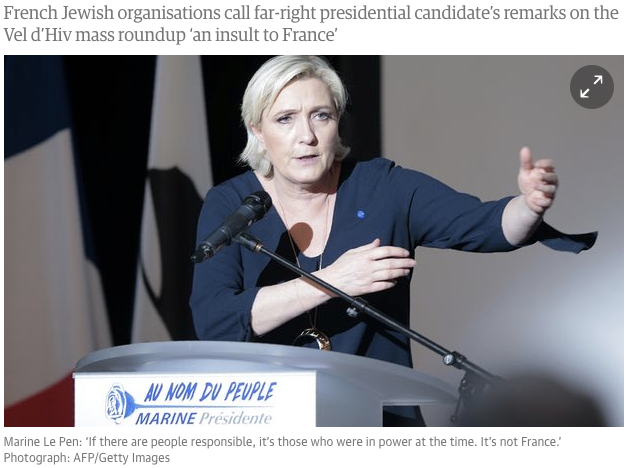Ms. Le Pen’s words created a small eruption in an already heated campaign, drawing strong criticism by politicians right, left and center and by Jewish groups, who all saw it as an echo of her party’s anti-Semitic roots.
In addition, the remark contradicted over 20 years of state policy, which has been to recognize French responsibility for the roundup, in which thousands of men, women and children were rousted from their homes by French police officers, parked in a stinking overcrowded sports arena in Paris — the Vélodrome d’Hiver, which has since been destroyed — and eventually deported to their deaths in concentration camps.
Ms. Le Pen’s words also flew in the face of over four decades of historical research into the eager collaboration of the wartime French government, which had been installed in the spa town of Vichy. It was the French government’s police chief, René Bousquet — a favorite of the head of the government at the time — who organized the roundup, impressing his German counterparts with his energy.
“Vichy did not have a knife to its throat,” the historian Philippe Burrin wrote of the Vel d’Hiv roundup in his landmark book, “La France à l’Heure Allemande,” (“France Under the Germans”).




